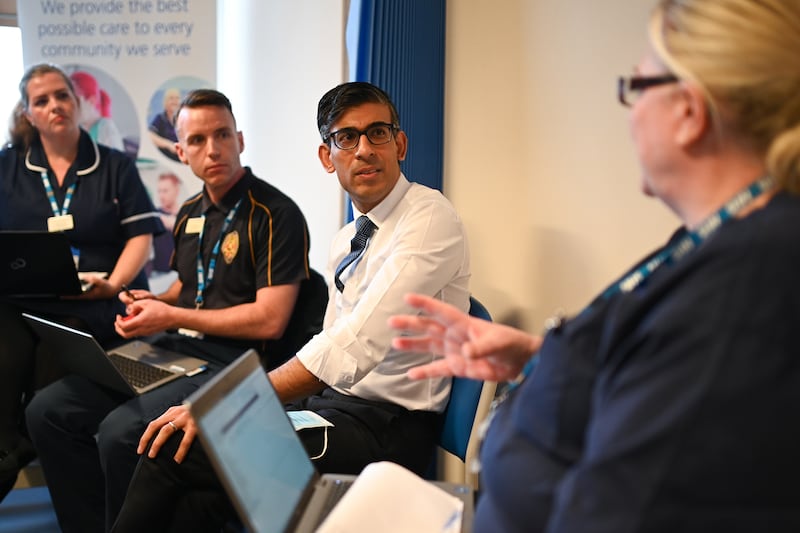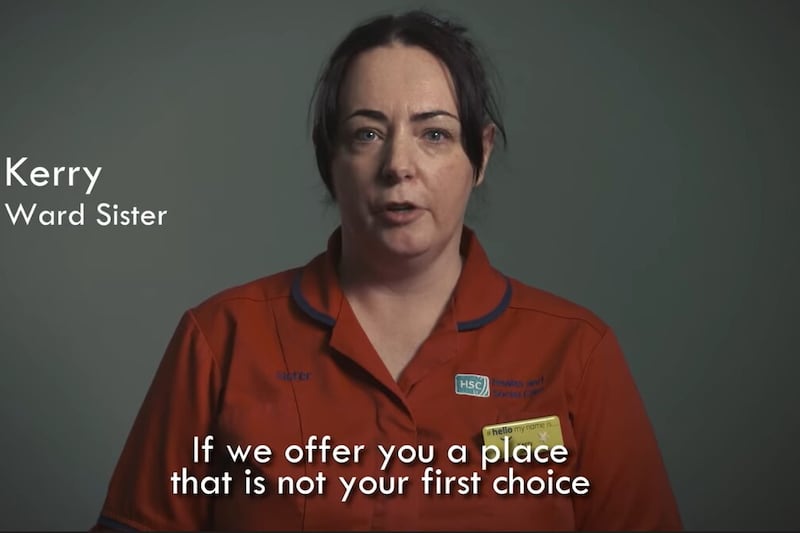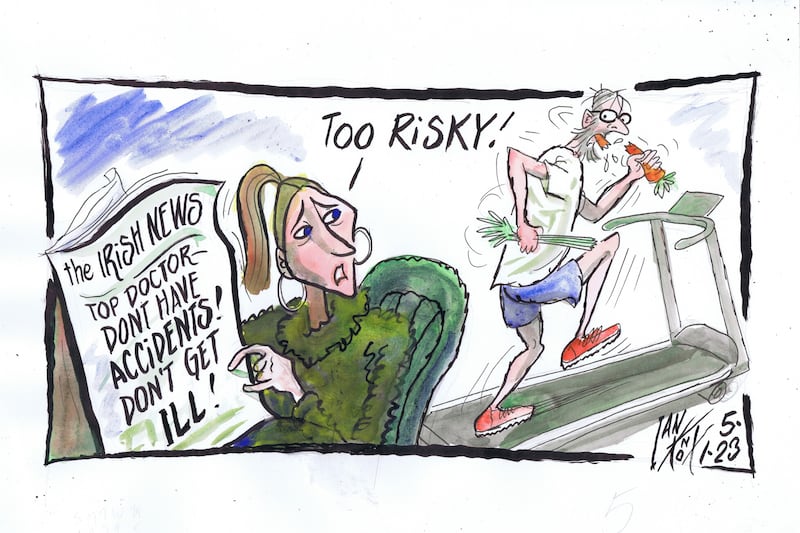A WEST Belfast doctor has said lengthening hospital waiting times mean there is no justification for the DUP's boycott of the Stormont institutions.
The latest figures from Belfast Trust show that waiting times for many patients are now measured in years rather than months.
The waiting times for new patients needing routine rheumatology treatment has increased over recent months and now stands at 381 weeks – or more than seven years.
Analysis: The health service is already in a sorry state without the DUP exacerbating the problem
The waiting period for urgent rheumatology treatment is little better at 350 weeks, the equivalent of more than six-and-a-half years.
Patients needing urgent neurology care can expect to wait three years, while routine treatment for a similar condition has a waiting time of more than six years.
West Belfast GP Dr Michael McKenna said it appeared waiting times "were increasing across the board" and that it was "unacceptable" for patients' treatments to be delayed for so long.
He said the current state of the health service meant it was difficult for the DUP to justify blocking the restoration of the institutions over concerns around the protocol.
"If you look at the harm being caused by the lack of services in healthcare compared to the lack of harm or difficulties associated with the protocol, there’s absolutely no comparison, and yet we’re focusing on the protocol," he told The Irish News.
"The lack of an ability to provide good healthcare is costing lives and that’s not being helped by the current political stalemate."
DUP MLA Pam Cameron said waiting lists spiralled after Sinn Féin walked out of government.
"Michelle O’Neill walked away from the Health Minister’s desk for three years, allowing waiting lists to spiral. During that time the only party that secured additional funding for our Health Service was the DUP. We secured hundreds of millions to tackle waiting lists," she said.
"We can only make progress in Northern Ireland through partnership and co-operation. If other parties are prepared to work constructively on solutions to the NI Protocol instead of jeering and the insults, then the foundation for progress can be built more quickly.
"In the meantime, the Protocol continues to impact every aspect of our lives, including the supply of medicines and medical devices which is critical to our Health Service. According to the Health Minister these matters have not yet been resolved."
A statement from Belfast Trust apologised to patients who were waiting too long for hospital treatment.
"It is unacceptable that any patient has to wait longer than is clinically appropriate for assessment or treatment and we understand the distress and anxiety that long waiting times cause, particularly when patients are adversely affected," the statement said.
The statement said that despite the ongoing challenges resulting from the pandemic and the need for "certainty of funding" the reduction of waiting times was a "key priority".
Former Stormont health committee chair Colin McGrath said the figures needed to "serve as a major wake up call to the DUP to end their stand-off of the institutions" and he claimed the party's boycott of both the executive and the assembly was "putting lives at risk".
"Where else would we see someone having to wait a full year for an urgent cardiology appointment, or over three years for an urgent neurology appointment?" the South Down MLA said.
"This simply isn’t good enough – while I appreciate the minister is limited in what he can do, something needs to be done to get a handle on this before lives are lost."
Alliance Party health spokesperson Paula Bradshaw said the lack of an executive and an assembly was having a "two-fold impact".
“The lack of executive impedes our ability to carry out the reform of the health system itself by stopping cross-departmental work on prevention and early intervention, and by placing severe restrictions on our ability to reshape the health estate and deliver regional specialisms," she said.
“The inability even to enable the functioning of the assembly also seriously impedes MLAs’ ability, on behalf of the public, the scrutinise reforms which would see more efficient response."
Last week, Health Minister Robin Swann announced the allocation of £46m to address what his department terms "waiting list activity". The money was in addition to the £90m the minister allocated last year, which delivered over 216,000 "patient contacts" by the end of February, which included 35,000 new outpatient appointments, 120,000 diagnostic appointments and 13,000 in-patient day case treatment.








